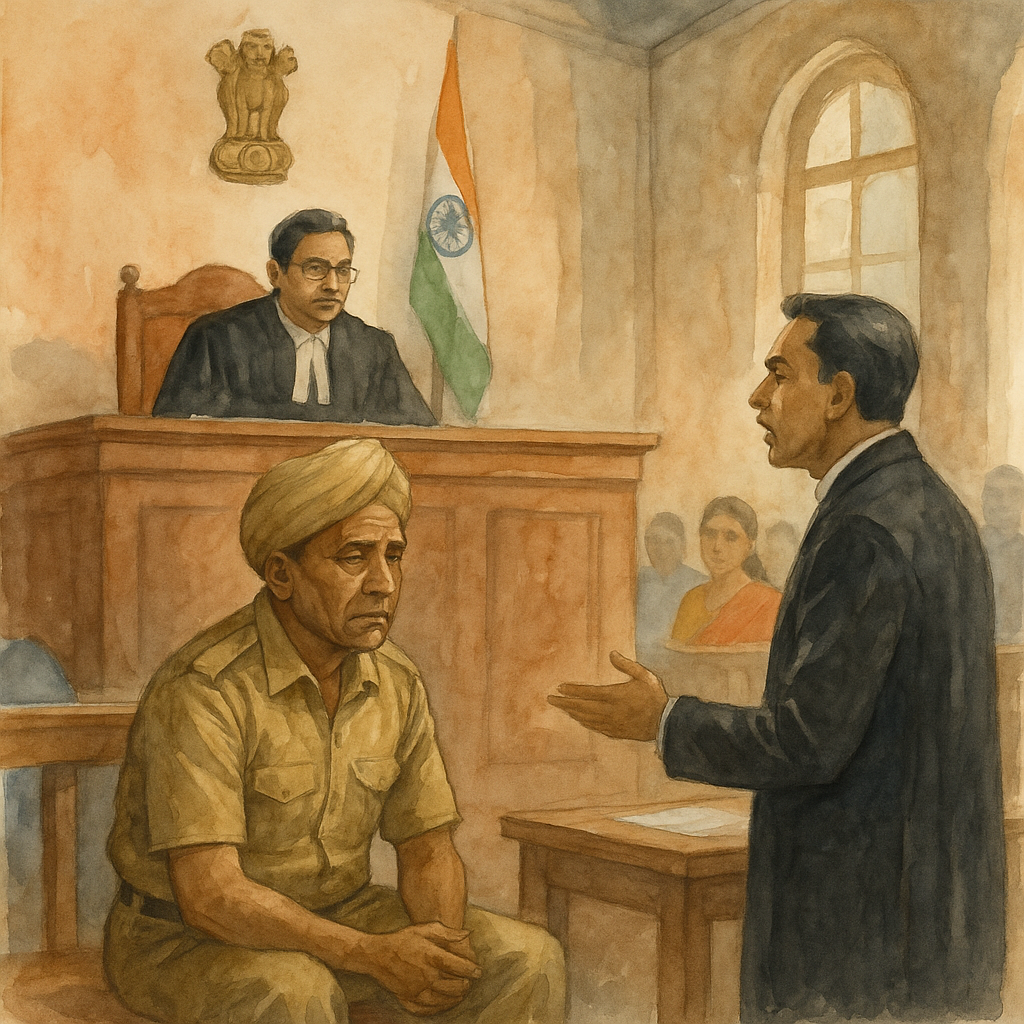Simplified Explanation of the Judgment
In a recent judgment, the Patna High Court reaffirmed the pension rights of a retired police Subedar, ruling that procedural formalities introduced after retirement cannot be used to reduce pension benefits.
The case was brought by a retired police officer who had served for 28 years and retired in 1999 while holding the post of Subedar in the Bihar Police. After retirement, the officer was denied full pensionary benefits by the government on the grounds that he had not passed the Hindi noting and drafting examination — a departmental requirement introduced in 2005, six years after his retirement.
The petitioner argued that he had been promoted to Subedar in 1988 and retired in that position. Hence, his pension should be calculated based on the last salary drawn, as per the standard rules in force at the time of his retirement. He contended that it was unjust and unreasonable to retrospectively apply a 2005 regulation to his case, especially when he had retired much earlier and had never been informed that failing the Hindi examination would impact his pension.
The respondents, including the State of Bihar, the State of Jharkhand, and the Accountant General, maintained that departmental policy required government employees to pass the Hindi noting and drafting test to gain monetary benefits from promotions. They cited Finance Department letter no. 4048 dated 3.6.2003 and Home Department memo no. 7225 dated 23.07.2005, which stated that failing the Hindi exam could result in promotions not being recognized for pension calculation purposes.
However, the Court observed that these departmental letters and rules could not be enforced retroactively. The petitioner had retired in 1999, well before these circulars were issued, and therefore could not be penalized for non-compliance with conditions that were not in existence during his service tenure. The Court found it unreasonable to reduce his pension based on regulations introduced after his retirement.
As a result, the Hon’ble Court directed the authorities to revise the petitioner’s pension on the basis of the last salary he drew as Subedar. It also mandated that the revised pension and any arrears be paid within 60 days of receiving the court’s order. If the authorities failed to comply within this timeframe, the entire arrears would attract 8% interest per annum from the date of retirement until full payment.
Significance or Implication of the Judgment
This ruling is significant for thousands of retired government employees across Bihar and Jharkhand, particularly those who retired before certain procedural requirements were introduced. It reinforces the principle that rules cannot be applied retroactively to deprive retired employees of their rightful benefits.
The judgment acts as a strong check against bureaucratic arbitrariness and ensures that retired personnel are treated with dignity and fairness. It also sends a message to government departments to ensure that policies are implemented in a legally consistent and transparent manner.
For pensioners who face similar issues, this case provides a clear precedent that may support their claims, especially where pension reductions are based on rules introduced after retirement.
Legal Issue(s) Decided and the Court’s Decision with Reasoning
- Whether departmental circulars issued after retirement can be applied to deny or reduce pensionary benefits?
- Decision: No. The Court held that circulars issued in 2003 and 2005 could not be applied to a person who retired in 1999.
- Reasoning: Retrospective application of rules violates principles of fairness and natural justice.
- Whether passing the Hindi noting and drafting examination was a precondition for receiving monetary benefits of promotion for pension purposes?
- Decision: While this may be a valid departmental condition, it cannot be imposed retrospectively on someone who was never subjected to it during their service.
- What salary should be used to compute the petitioner’s pension?
- Decision: The last salary drawn as Subedar in 1999 must be used for calculating the pension.
- Whether the authorities can delay compliance with the order without penalty?
- Decision: No. A 60-day timeline was given, beyond which interest at 8% per annum would apply on all arrears.
Case Title
Bishwanath Ram v. The State of Bihar & Ors.
Case Number
CWJC No. 15933 of 2018
Citation(s)
2020 (3) PLJR 35
Coram and Names of Judges
Hon’ble Mr. Justice Anil Kumar Upadhyay
Names of Advocates and who they appeared for
- Mr. Anil Kumar Maharaj, Advocate – for the petitioner
- Mr. Sheo Shankar Prasad (SC-8) – for the State
- Mr. Kumar Priyaranjan, Advocate – for the Accountant General
Link to Judgment
https://patnahighcourt.gov.in/vieworder/MTUjMTU5MzMjMjAxOCMyI04=-yLrtRAE804Y=
If you found this explanation helpful and wish to stay informed about how legal developments may affect your rights in Bihar, you may consider following Samvida Law Associates for more updates.









